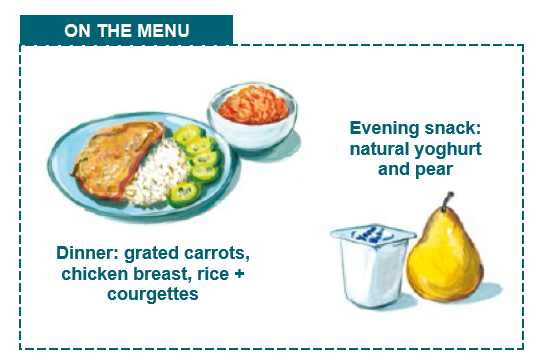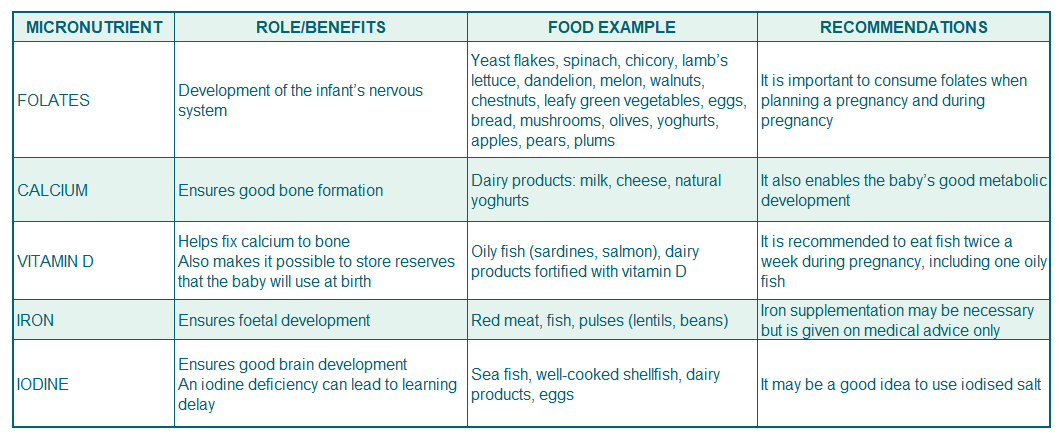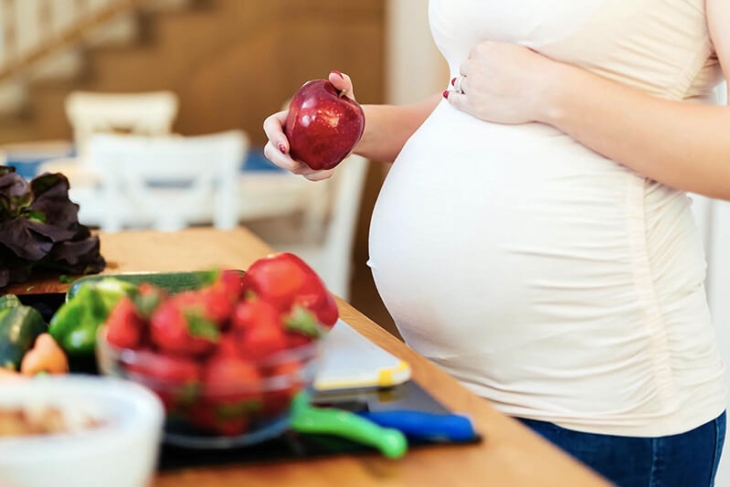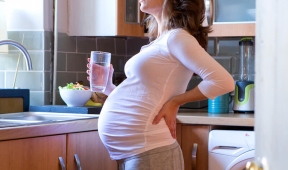The importance of diet during pregnancy
Overview
Eating well during pregnancy
A good diet during pregnancy means eating twice as well but not necessarily twice as much! Energy requirements remain the same as in a normal adult (around 2,500 kcal per day) but vitamin and mineral requirements increase.
Eating several lighter meals over the course of the day may aid digestion and prevent nausea and cravings. If cravings persist, we recommend increasing the amount of cereals and/or pulses in each meal.
In the evening, it is a good idea to divide up meals, leaving an interval of a few hours between the main course and the dessert.

It is also advisable to keep up a reasonable level of physical exercise (walking, swimming), to help maintain abdominal muscle tone and promote psychological well-being, in addition to having a healthy, balanced diet.
Covering the needs of the unborn baby
To ensure baby's healthy development, a balanced diet will cover all the needs of the foetus, but it is important to pay particularly close attention to some nutritional elements. These include:

A few precautions need to be taken
Some types of food should be avoided to ensure the healthy physical and cognitive development of the foetus. Drinks such as tea and sodas are clearly not recommended. Alcohol and smoking are also banned because they transmit substances that are toxic to the foetus. Coffee should be limited to no more than 3 cups per day.
Soya and soya products contain phyto-oestrogens that could have harmful effects on the foetus as well.
For your health and that of your baby, the most important thing is to favour a balanced, high-quality diet..
Summary table of recommendations




